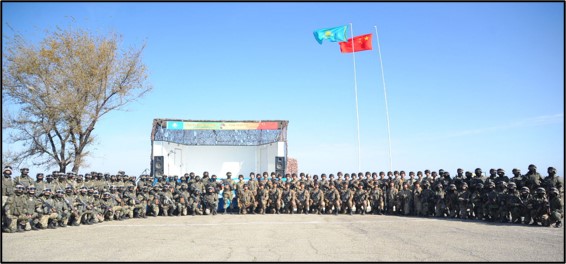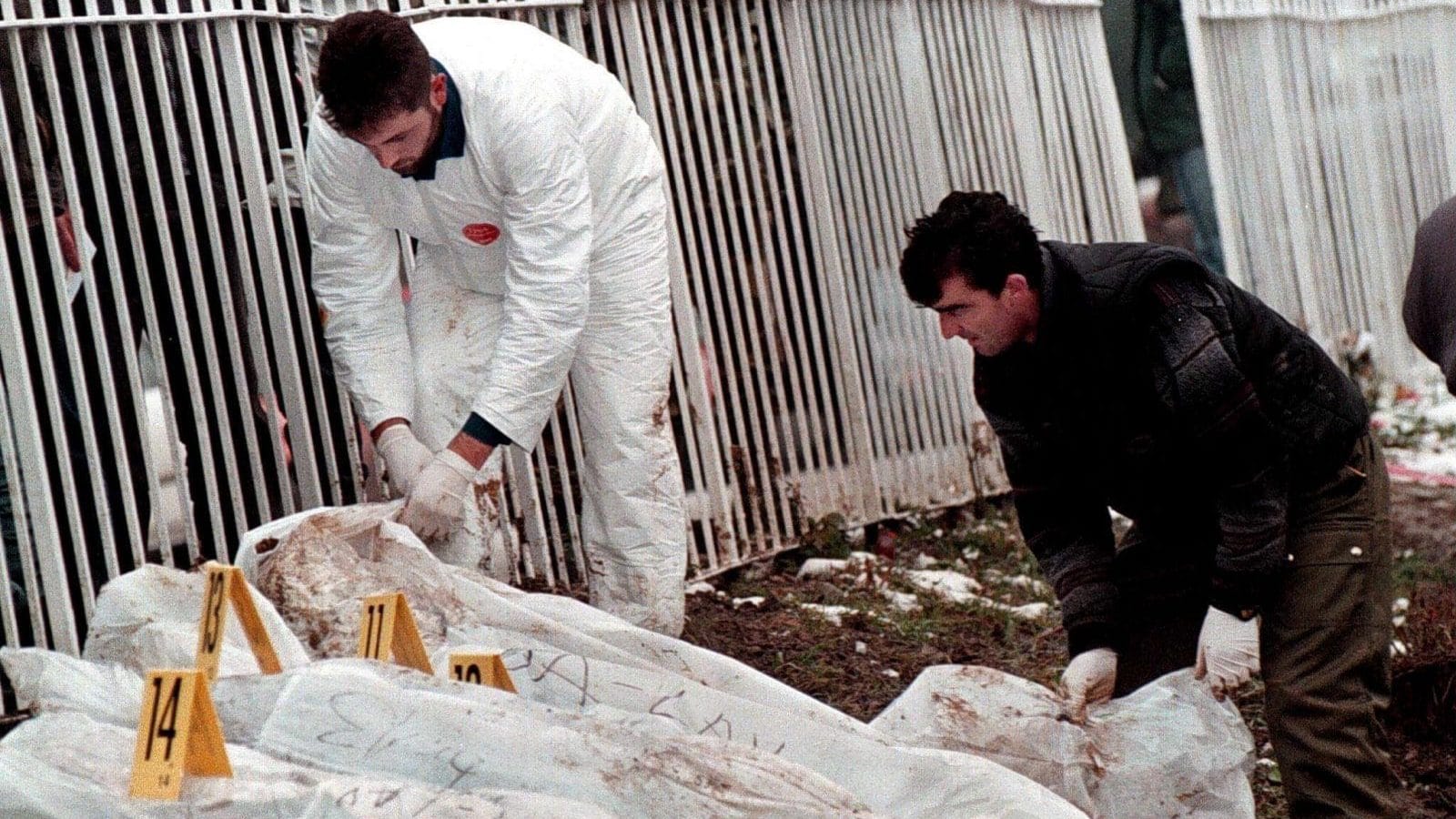
The Jamestown Foundation (19 October 2020)
Sergey Sukhankin
Editor’s Note: This is the third installment of a three-part China Brief series about the Chinese government’s efforts to exert greater influence over regional security arrangements and policy in the states of Central Asia. The first part, “The Security Component of the BRI in Central Asia, Part One: Chinese and Regional Perspectives on Security in Central Asia,” appeared on July 15; the second part, “The Security Component of the BRI in Central Asia, Part Two: China’s (Para)Military Efforts to Promote Security in Tajikistan and Kyrgyzstan,” was published in our August 12 issue. In this third and final installment, Jamestown Fellow Sergey Sukhankin analyzes the ways in which China’s growing presence is affecting developments and security relationships in Kazakhstan, Uzbekistan, and Turkmenistan.
Introduction
Addressing the 56th Munich Security Conference in February, Kazakhstan President Kassym-Jomart Tokayev emphasized Central Asia’s strategic importance for the realization of the Belt and Road Initiative (BRI), the crown jewel foreign policy program of the People’s Republic of China (PRC) (Belt and Road News, June 4). President Tokayev’s speech failed to mention that the opportunities for regional development along the BRI are balanced by security-related challenges. The first two articles of this series provided an overview of the general security environment in the region, followed by an analysis of the PRC`s security activities in Kyrgyzstan and Tajikistan (China Brief, August 12). This third article will examine the PRC’s military and paramilitary security initiatives in Kazakhstan, Uzbekistan, and Turkmenistan—three of the larger and more economically developed countries in the macro-region of Central Asia.
No comments yet.
-
 BOSNIA, SERBIA EXCHANGE EXHUMED REMAINS OF WAR DEAD
The Balkans
20.10.2020
BOSNIA, SERBIA EXCHANGE EXHUMED REMAINS OF WAR DEAD
The Balkans
20.10.2020
- AZERBAIJAN MAKES STRATEGIC ADVANCES ALONG KARABAKH’S NORTHERN, SOUTHERN FLANKS The Caucasus and Turkish-Armenian Relations 20.10.2020
- INTERNATIONAL LAW CAN'T SOLVE THE GRECO-TURKISH ISLAND PROBLEM The Balkans 20.10.2020
- KYRGYZSTAN'S ACTING PRESIDENT MAY SEEK CONSTITUTION CHANGE TO RUN FOR FULL TERM Central Asia 20.10.2020
-
 EU MONEY USED BY NEO-NAZI TO PROMOTE HOLOCAUST DENIAL
Europe - EU
20.10.2020
EU MONEY USED BY NEO-NAZI TO PROMOTE HOLOCAUST DENIAL
Europe - EU
20.10.2020
-
25.01.2016
THE ARMENIAN QUESTION - BASIC KNOWLEDGE AND DOCUMENTATION -
12.06.2024
THE TRUTH WILL OUT -
27.03.2023
RADİKAL ERMENİ UNSURLARCA GERÇEKLEŞTİRİLEN MEZALİMLER VE VANDALİZM -
17.03.2023
PATRIOTISM PERVERTED -
23.02.2023
MEN ARE LIKE THAT -
03.02.2023
BAKÜ-TİFLİS-CEYHAN BORU HATTININ YAŞANAN TARİHİ -
16.12.2022
INTERNATIONAL SCHOLARS ON THE EVENTS OF 1915 -
07.12.2022
FAKE PHOTOS AND THE ARMENIAN PROPAGANDA -
07.12.2022
ERMENİ PROPAGANDASI VE SAHTE RESİMLER -
01.01.2022
A Letter From Japan - Strategically Mum: The Silence of the Armenians -
01.01.2022
Japonya'dan Bir Mektup - Stratejik Suskunluk: Ermenilerin Sessizliği -
03.06.2020
Anastas Mikoyan: Confessions of an Armenian Bolshevik -
08.04.2020
Sovyet Sonrası Ukrayna’da Devlet, Toplum ve Siyaset - Değişen Dinamikler, Dönüşen Kimlikler -
12.06.2018
Ermeni Sorunuyla İlgili İngiliz Belgeleri (1912-1923) - British Documents on Armenian Question (1912-1923) -
02.12.2016
Turkish-Russian Academics: A Historical Study on the Caucasus -
01.07.2016
Gürcistan'daki Müslüman Topluluklar: Azınlık Hakları, Kimlik, Siyaset -
10.03.2016
Armenian Diaspora: Diaspora, State and the Imagination of the Republic of Armenia -
24.01.2016
ERMENİ SORUNU - TEMEL BİLGİ VE BELGELER (2. BASKI)
-
AVİM Conference Hall 24.01.2023
CONFERENCE TITLED “HUNGARY’S PERSPECTIVES ON THE TURKIC WORLD"









